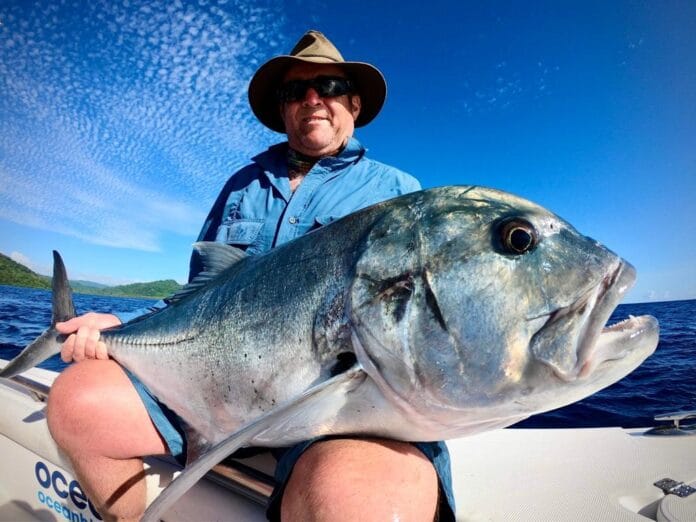Anglers can be considered as guardians of the environment and with more new anglers keen to enjoy the sport and lifestyle, it is of utmost importance that we share with them the best fishing practices we adhere to in order to help maintain the amazing environment we spend a lot of time in.
Barbless Hooks
Use barbless hooks or flatten the barbs before fishing to make hook removal easier while minimizing damage to the fish. This will also lead to a better hook penetration when setting the hook, eventually resulting to a better hook up to land ratio. Apart from catching and releasing more fish, having barbless hooks is a lot safer for the angler too. It is no fun trying to remove hooks from flesh.
Hook Selection
If the technique and targeted species allow, minimize use of treble hooks. Treble hooks is pairs or more can do serious damage to fish and angler. Single in-line hook setups are widely used even in the GT popping scene, with large single hooks rigged onto poppers and stickbaits. If you are still hesitant to use single hooks on your big poppers and sticks, check out and try the “Baker Rig”. It consists of a single tail hook paired with two single hooks zip tied together facing away from each other rigged onto the belly of the lure.
Keep it Wet
Fish have protective slime all over their bodies and removal of this results in irreversible damage to their skin and may cause a slow demise. Always wet your hands before touching a fish. If possible, unhook the fish in the water and let it swim free without leaving its own environment. If you must land a fish into a boat or on land, make sure to keep it on a wet surface, inside a wet net or fish mat. Never place a fish on a hot and dry boat deck or gravel, sand or stone.
Photos
When taking photos, make sure that you do so in a smooth and efficient manner. When the fish is boat-side, get your camera ready for action. The person taking the photos should be ready before you lift the fish out of the water. Only keep fish out of water as long as you can hold your breath. Remember to wet everything that the fish may have contact with, like your arms, legs and clothing. Evenly support the fish’s weight and avoid lifting the fish only by the tail to prevent damage to their spines.
The Release
After a long battle and struggle, your fish will surely be tired and in need of proper recovery before release. Support it in the water facing the current to allow water to flow through its gills for oxygenation. Refrain from moving the fish backward and forward in an attempt to revive fish quicker. It is best to allow the fish to breathe and recover naturally with a natural flow from the current. The fish will let you know when it is ready and will swim away on its own.
Catch and Release
Practicing catch and release is the norm and should be practiced for a better fishing future. But taking freshly caught fish home is amazing and we can all still do it responsibly. If you plan to take fish home for the table, ensure that you follow your local government regulations for size and number of allowable fish to take. Dispatch the fish as quickly as possible then bleed and ice for storage. Don’t take more than you need.
By practicing the above actions, it will be us anglers and guardians of the environment who will benefit in the long run. Let us all do our part in helping maintain the environment we love so we can keep enjoying the sport and lifestyle of angling. If you know any anglers new to the sport, or even experienced angling buddies, make sure to share these best practices with them. Let’s all do our part for a better fishing future.
If you want to experience landing your fish of a lifetime, BOOK NOW a Vanuatu fishing adventure with Ocean Blue Fishing! Call us now at 1300 564 616 or at (INTL) +61 436 020322 or you may also contact us HERE.

